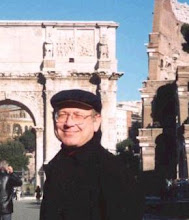The intent of this blog entry is to tell complete history of man’s civilization accurately in one short single-page summary. Of course, for the sake of brevity, a lot of details need to be left out, but all of the major parts of the story are included without abridgement. So, to full this ambitious intention, I offer the following as the complete history of man’s adventure here on earth.
Man, since the beginning of time, has applied value to the things of his world. He has valued some things more than other things and has conducted his life according to these judgments of value. His values have been an individual experience and have never been shared directly with his fellowman. He has communicate reasons and feelings to his fellowman, and by doing such, he has influence their values, but each member of his race has always had a private experience when he has placed value upon the things of the world. Value has always been, and will always be, a very individual subjective experience.
The individuality of the valuing experience can account for most of what we call our history, including its most constructive and destructive chapters. The differences in valuation between men have led to two very different types of activities that we have recorded as history. The first type of activity is voluntary, entered into by men peacefully cooperating with each other to take joint advantage of their differences in values; the second type is involuntary, where a stronger man applies force and coercion to a weaker man to make the weaker support the values of the stronger.
Throughout history, the first type of activity, the voluntary one, has taken advantage of the differences in the values of its participants to enrich them, creating civilizations, cultures, and ideas as its byproduct. This type of activity is called trading and it typically occurs when a man values the things possessed by another but puts aside his envy and other violent instincts in order to peacefully achieve the things he values most.
The second type of activity, the use of force by more powerful men against the less powerful, goes by many terms but is perhaps best summarized as “the state.” It typically occurs when an individual or a group of allied individuals value the things possessed by others and use violence or the threat of violence to tax, confiscate, or otherwise take what they so covet.
Mankind’s biography has been one dominated by the countering effects of these two types of activities: the mostly constructive effects of individuals trading their advantages for the advantages of others, and the mostly destructive effects of other individuals who take those advantages by force.
Tuesday, March 3, 2009
The Brief History of the World
Labels:
force,
free trade,
history,
liberty,
politics,
restraint of trade,
state,
statism,
subjective value,
trade,
vallue
Subscribe to:
Post Comments (Atom)




No comments:
Post a Comment